13th World Conference on Bioethics, Medical Ethics & Health Law, Jerusalem, 2018
Sam Calmonson, a final year medical student at University of Birmingham, received an IME conference grant to give an oral presentation at the 13th World Conference on Bioethics, Medical Ethics & Health Law, Jerusalem, November 2018. Read his report below
Thanks to the Institute of Medical Ethics Conference Grant programme, I had the opportunity to attend the 13th World Conference on Bioethics, Medical Ethics and Health Law, organised by the UNESCO Chair in Bioethics. The conference took place in the Ramada Hotel in Jerusalem and ran across three days, with over 800 participants discussing more than 60 topics in bioethics and law.
Each day was split into sessions, with the vast majority of each sessions having five 15 minute presentations under a common theme, leaving a short amount of time for general questions at the end. Some operated as a round table discussion between experts in a topic, followed by a generalised discussion involving the audience afterward. Outside these scheduled hours, the set-up of the hotel allowed for fruitful discussion about the ethical topics, as well as an opportunity to ask more detailed questions of the presenters and their work. This is something with which I actively engaged, finding their comments on my own work very helpful. The sheer variety of opportunities to learn about new and developing research was astounding.
Of the topics available, I particularly enjoyed session relating to the ethics of informed consent, ethics in Jewish law, ethical decision-making in psychiatric patients and the other presentations in my own session on ‘Death and Dying: Life’s Beginning’. In the session about informed consent, there was research published by surgeons describing the ethical implications of consenting patients to surgery carried out by trainees and the degree to which consent for this needed to be gained. This sparked debate about the ‘minimally good samaritan’ and whether there exists a collective societal obligation to be treated by trainee doctors for the good of the society. This was followed by a philosopher’s approach to using the informed consent principle as an argument for euthanasia. The session about Jewish law discussed arguments about abortion based upon the debate between two famous biblical scholars, as well as looking at the religious interpretations about genome editing – something important for future healthcare practices in Israel. After my own presentation about the ethics of withholding resuscitation from extremely premature neonates, there was a presentation about extending Canada’s Medical Assistance in Dying (MAiD) programme to those who are under 18 years of age, using case studies of teenage cancer patients who have reached palliative stages but not the age above which MAiD was available. This extended into a wider debate about assisted dying in general. Similarly, a psychiatrist from Harvard Medical School talked the topic of assisted dying in psychiatry the following morning. These topics tended to generate the most conversation during the questions and answer sessions. Another presentation that I found particularly interesting was the question of administering contraception to migrants in expectation of rape. The question posed by the presenter was whether this was ethically justified by preventing pregnancy or complicit by not preventing rape. The consequentialist argument found that contraception was a net good and therefore ethical, but the topic raised the wider topic of migrants from other countries, something that has taken a back seat in the wider news today.
I thoroughly enjoyed the opportunity to present my own research to an audience of about 50 people. It was a new experience, involving dealing with people who vehemently disagreed with my content during my presentation as well as those who actively engaged with my work and sought me out after to continue the discussion. I have been able improve my own work and find helpful people to consult in the future. None of this could have been possible with the generous grant from the Institute of Medical Ethics and it is to them that I am most grateful for allowing me this enriching opportunity.
